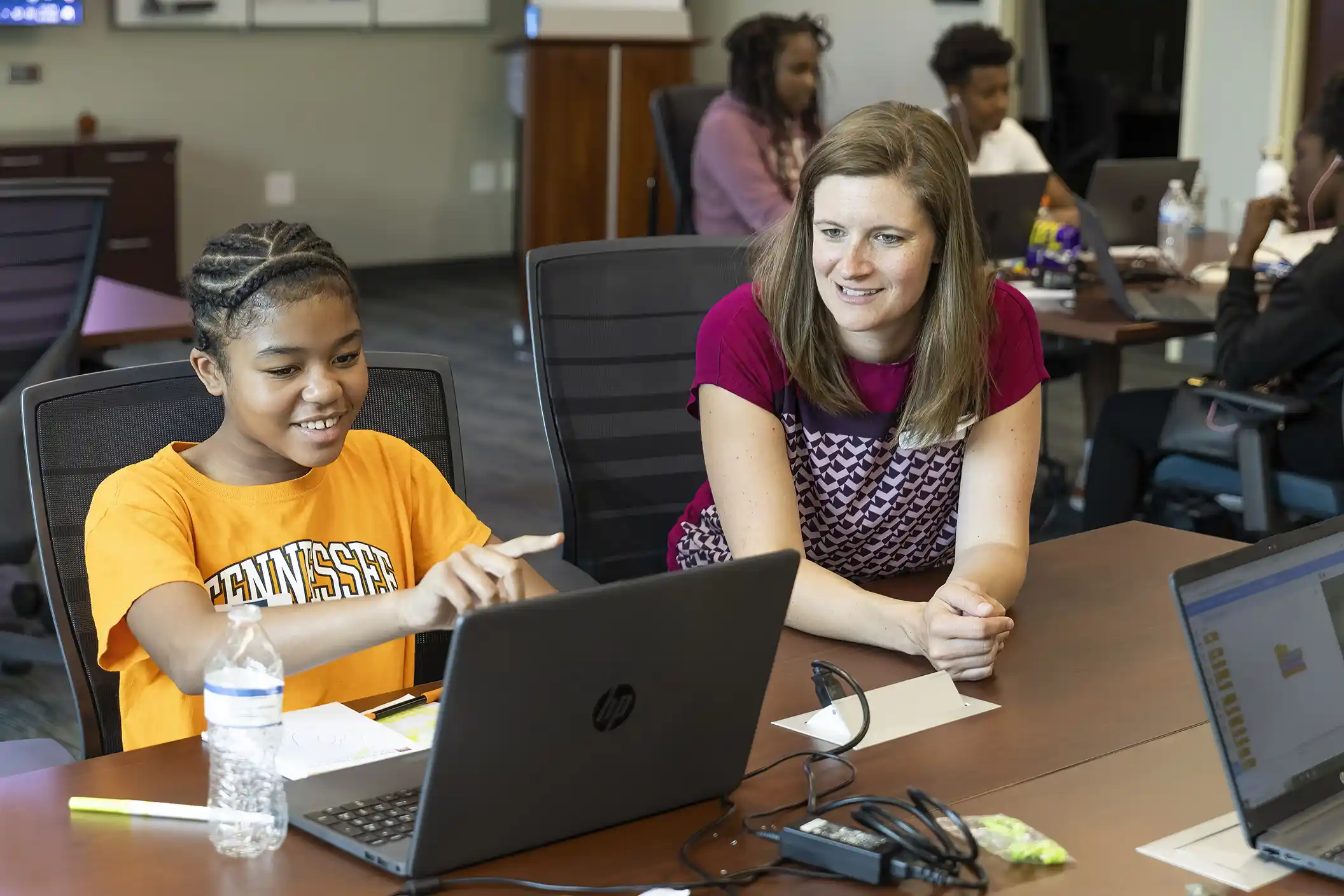Mini-Academy helps middle schoolers weigh the pros and cons of artificial intelligence

Recently, twelve rising seventh to ninth graders attended an Artificial Intelligence Mini Academy sponsored by ORISE. The program was designed to help children and teachers get acclimated to the use of AI in the classroom, a tool becoming more commonplace in the modern world seemingly every day.
Over two days students were able to use various AI-based apps on Apple products. During one outdoor activity, students scanned plants and insects using an AI-based iPad app that gave them the species and other information on the life form. Some students were even able to determine which plants were deficient in water and sunlight exposure. Students took to the nearby pond to identify a variety of different species of plants and insects, some even attempting to identify fish living in the pond.
Students also studied facial recognition using apps like 3D Posenet, which is a program designed to predict and replicate the pose made by its user or subject. This lesson was reinforced with a screen-free game of charades, to iterate the logic these programs use to predict how its subjects will be posed or placed.
“I’d heard of [AI], but I wasn’t that interested,” said Naomi Rosser, a seventh grader at Hardin Valley Middle School in Knoxville. “I didn’t know how many [apps] there were, and how often we use them in our daily lives. Like Google, Siri, and Alexa. I think it’s definitely fun and useful.”
Students may have even put their teachers’ minds at ease knowing that AI, and more specifically ChatGPT, is being used for improvement rather than dishonesty. One seventh grader, Eros Dunkin, had this to say on the topic:
“I do like using it for essays, just to see what it comes up with versus what I come up with, and then compare the two,” says Dunkin, who wants to pursue engineering when he gets older.
Not all AI learning has to derive from screens. Education in computer-based science can, in fact, be achieved when unplugged. Another lesson saw students playing a game of prediction and elimination based around numbered plastic cups and their corresponding number of pencils. Not only was this a test of logistical reasoning, but it also provided a layman’s look into the logic AI programs apply to their decision making.
While artificial intelligence is certainly making waves in the news, this academy was prepared to show off both the good and the bad that comes with emerging technology. Especially to its most susceptible audience, children.
“I’d say compared to older individuals, [students] are less worried about artificial intelligence,” says instructor Lauren Wilmoth, who teaches ninth grade biology and STEM at Oak Ridge High School. “In some ways this is good, but part of what we’re trying to do is get them to realize that there can be bias and ethical concerns with AI. This is extra important for the kids because they just lived it, so we want to make sure they think deeper about it.”
Innovations tend to be new for everyone, yet it's consistently our youth who are the fastest to understanding it. Hopefully with the right guidance, students in the AI mini academy were able to further grasp its limitations, as well as its possibilities.
Media Contacts
Pam Bonee
Director, Communications
Phone: 865.603.5142
pam.bonee@orau.org
Wendy West
Manager, Communications
Phone: 865.207.7953
wendy.west@orau.org
The Oak Ridge Institute for Science and Education (ORISE) is a U.S. Department of Energy (DOE) asset that is dedicated to enabling critical scientific, research, and health initiatives of the department and its laboratory system by providing world class expertise in STEM workforce development, scientific and technical reviews, and the evaluation of radiation exposure and environmental contamination.
ORISE is managed by ORAU, a 501(c)(3) nonprofit corporation and federal contractor, for DOE’s Office of Science. The single largest supporter of basic research in the physical sciences in the United States, the Office of Science is working to address some of the most pressing challenges of our time. For more information, please visit science.osti.gov.

